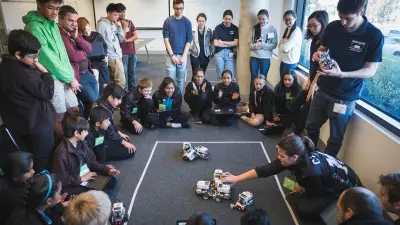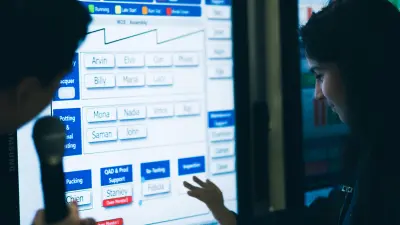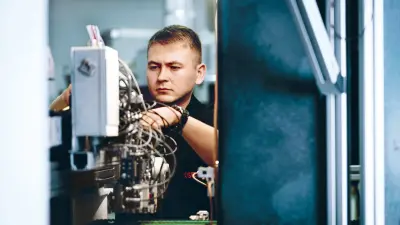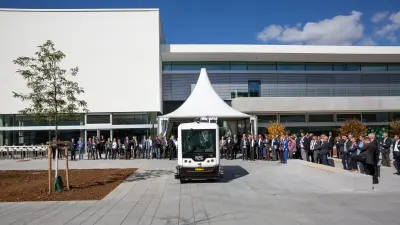Learning at Bosch
Bosch Australia sparks pupils’ interest in STEM disciplines
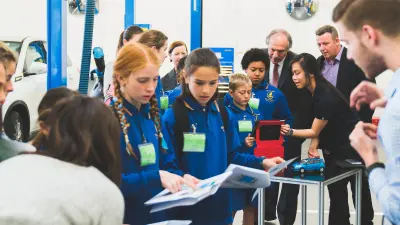
Highly-qualified specialists are needed to make smart innovations possible. To spark pupils’ enthusiasm for the STEM disciplines, Bosch has initiated the “Learn@Bosch” project in Australia.
Making technology tangible
In the future, three of every four jobs will require specialist knowledge in the STEM disciplines (science, technology, engineering, and maths). However, the number of people studying these subjects is decreasing or stagnating in many industrialized nations. What is more, only 16 percent of current employees in STEM-related jobs are female.
One challenge is the lack of qualified teachers who can motivate children and young people to develop an interest in the natural sciences.
For instance, in Australia the STEM sector accounts for only a quarter of the country’s economic output. At the same time, the Australian Chief Scientist’s Report found out that more than half of school principals have reported that the STEM disciplines at their schools are taught by non-specialized teachers. Moreover, the curriculum is often theoretical with a very limited practical focus. This is where the “Learn@Bosch“ project comes in: it aims to spark schoolchildren’s interest in the STEM disciplines at an early stage.
Wanted: the experts of the future
Over the course of the program, sixth graders have visited the Bosch campus in Clayton, where they have learned how the technologies of the future work. With the help of Bosch associates, many of them university interns, they take a playful approach to developing solutions to real life challenges. In 2018, more than 40 Bosch volunteers held 34 interactive workshops on six special topics – from automated driving and augmented reality to human-robot collaboration. A programming class, which was supported by the Robogals student organization from Monash University, was among the project’s highlights. The club aims to inspire young women to pursue careers in mechanical engineering and related professions and the program targets schools from lower socio-economic areas, exposing them to new technologies.
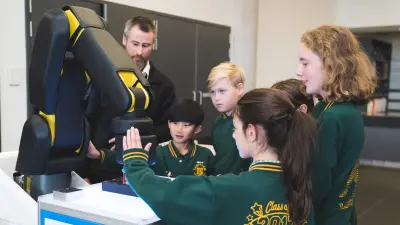
“Learn@Bosch enables students to experience technical innovations in a real work enviroment. This is the best way to get young people interested in the STEM disciplines.”
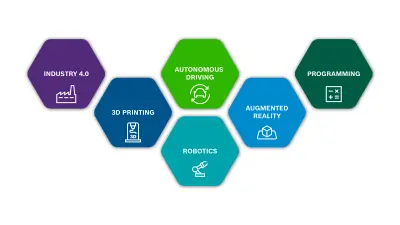
Sparks flying
In 2018, more than 1,000 pupils from 17 Australian schools took part in Learn@Bosch, and their feedback has been very positive: 98 percent of participants said they learned from the experience. More than four out of five participants would like to attend another similar event at Bosch. The program is the only one of its kind in Australia and is part of the educational network in the state of Victoria. And Learn@Bosch has attracted attention beyond Australia as well. For instance, the program was presented at an event of the German Chamber of Industry and Commerce (DIHK) in 2018. In 2019, Learn@Bosch will be expanded by 50 percent with 1,500 students booked to attend.
For instance, in Australia the STEM sector accounts for only a quarter of the country’s economic output. At the same time, the Australian Chief Scientist’s Report found out that more than half of school principals have reported that the STEM disciplines at their schools are taught by non-specialized teachers. Moreover, the curriculum is often theoretical with a very limited practical focus. This is where the “Learn@Bosch“ project comes in: it aims to spark schoolchildren’s interest in the STEM disciplines at an early stage.
1,004
Pupils have participated in the project
17
Schools were involved in Learn@Bosch
34
Interactive workshops were held on six special topics
Enthusiastic participants
“It was exciting for me to teach a robot new movements at the programming workshop.”
“I especially liked seeing changes made to a Tesla with Augmented Reality.”
“I was surprised how inexpensive printing objects with a 3D printer is.”
Pupils from St. Joseph's primary school
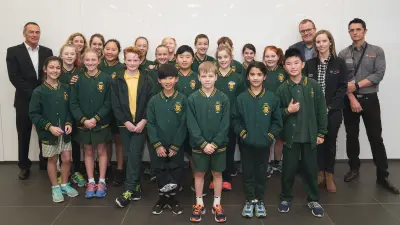
Enthusing kids for engineering
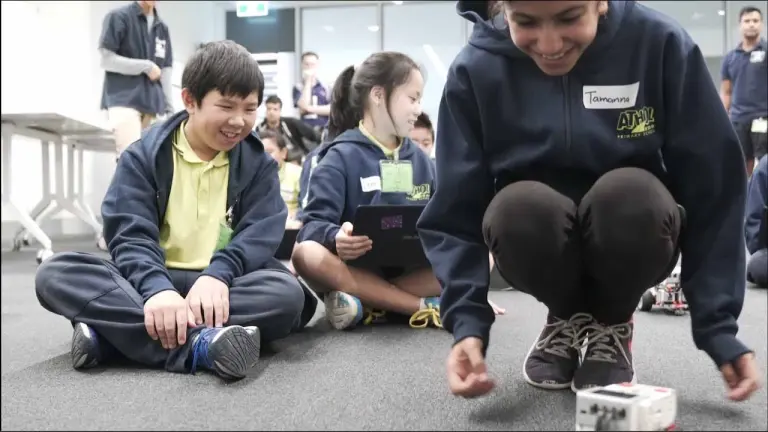
Loading the video requires your consent. If you agree by clicking on the Play icon, the video will load and data will be transmitted to Google as well as information will be accessed and stored by Google on your device. Google may be able to link these data or information with existing data.
Conclusion
The need for qualified specialists who develop innovative products and solutions will continue to grow worldwide. With the aim of making pupils interested in the STEM disciplines, Bosch has launched the Learn@Bosch project in Australia. Over the course of the program, Bosch associates have given young people the opportunity to see the technologies of the future in action.
